PRACTICAL GUIDE TO SUSTAINABLE ECONOMIC GROWTH IN COMMUNITIES
A ONE-DAY TRAINING FOR THE POLICE OFFICERS’ WIVES ASSOCIATION (POWA), OGINIGBA
Sustainable economic development is a cornerstone of strong, self-reliant communities. Recognizing the essential role that women play in household stability, business creation, and community welfare, the Rotary Club of Port Harcourt Cosmopolitan organized a one-day intensive training tagged “Practical Guide to Sustainable Economic Growth in Communities”. The programme was specially designed for members of the Police Officers’ Wives Association (POWA), Oginigba, equipping them with the right knowledge and tools to build thriving cooperative ventures, strengthen economic self-sufficiency, and contribute meaningfully to community growth.
The training featured three highly experienced speakers who provided deep insights into governance, leadership, cooperative values, business planning, and financial management. With a practical, interactive structure, the event ensured that participants gained both theoretical understanding and real-life strategies applicable to their daily economic activities.
To further create a warm and engaging atmosphere, all participants received refreshments, fostering networking and collaborative discussions among the women.
Understanding the Foundation of Community Economic Growth
Cooperatives remain one of the most powerful vehicles for grassroots economic development—especially for vulnerable groups such as widows, low-income families, and spouses of security personnel. They provide platforms for shared resources, collective responsibility, and mutual support. The training began with an exploration of what makes cooperatives effective and how members can harness these principles to transform their households and communities.
The first session, delivered by Ibioku J. Owugah, Esq., LLM, focused on Understanding Cooperative Principles and Values. She emphasized the history, structure, and global success of cooperative movements, outlining the seven universally recognized cooperative principles: voluntary and open membership, democratic member control, member economic participation, autonomy and independence, education and training, cooperation among cooperatives, and concern for community.
Owugah explained that when women embrace these principles, they gain the power to build strong financial groups capable of addressing shared needs—whether through savings schemes, food distribution cooperatives, skill-based enterprises, or small-scale production units. She also stressed the difference between a cooperative and a conventional business, highlighting that cooperatives exist to serve their members first.
Participants were encouraged to view cooperatives not as casual associations but as structured organizations capable of driving local wealth creation. The session provided clarity, confidence, and inspiration for many of the women who were eager to explore cooperative ventures or strengthen the ones they already belonged to.
Leadership, Governance, and Managing Conflicts in Cooperatives
Effective leadership remains one of the most important variables in the survival and growth of cooperative organizations. The second session was delivered by Janefrances Ojoma Bianeyin, Esq., LLM, on Governance, Leadership, and Conflict Resolution in Cooperatives.
She defined governance as the framework of rules, practices, and processes through which a cooperative is directed and controlled. According to her, cooperative officers must uphold accountability, transparency, fairness, and ethical conduct to maintain members’ trust and ensure long-term success. She further highlighted the roles of key officers such as the president, secretary, treasurer, and committees.
Bianeyin underscored that leadership within cooperatives must be participatory rather than authoritarian. Since cooperatives are built on democratic control, leaders are custodians of collective interests. She provided practical guidance on effective communication, member engagement, team building, and participatory decision-making.
One of the most impactful aspects of her session was the segment on conflict resolution. She noted that conflicts are inevitable in group structures but must be managed quickly and constructively. She taught participants techniques such as mediation, negotiation, and maintaining open dialogue. The attendees expressed appreciation for the practical examples and role-play sessions that demonstrated peaceful conflict resolution strategies.
Her session concluded with a reminder that strong leadership and good governance are non-negotiable for long-lasting cooperative growth.
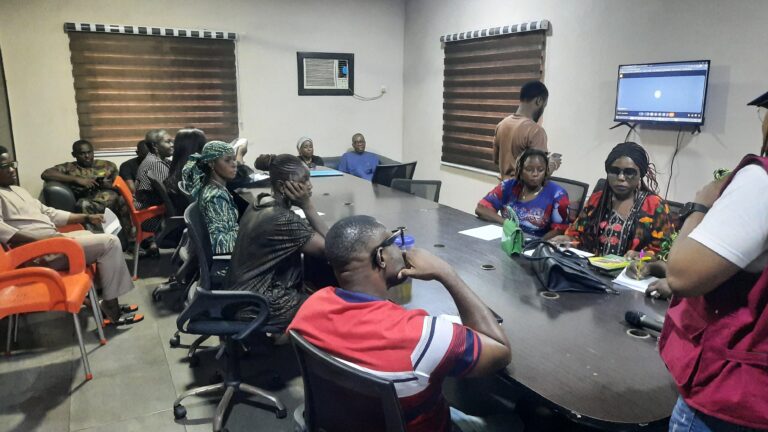
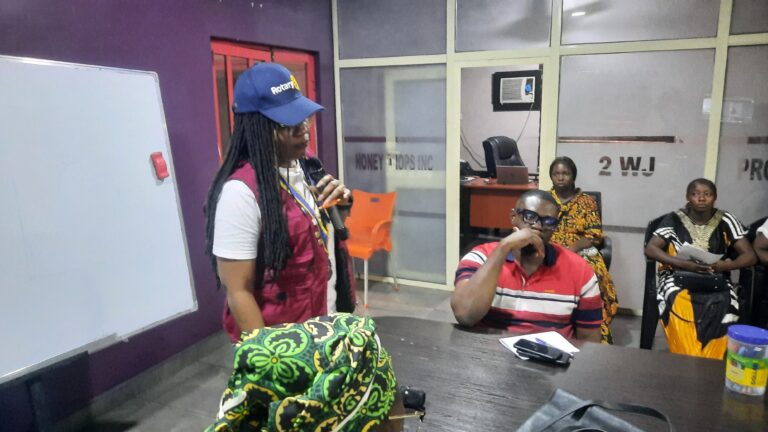
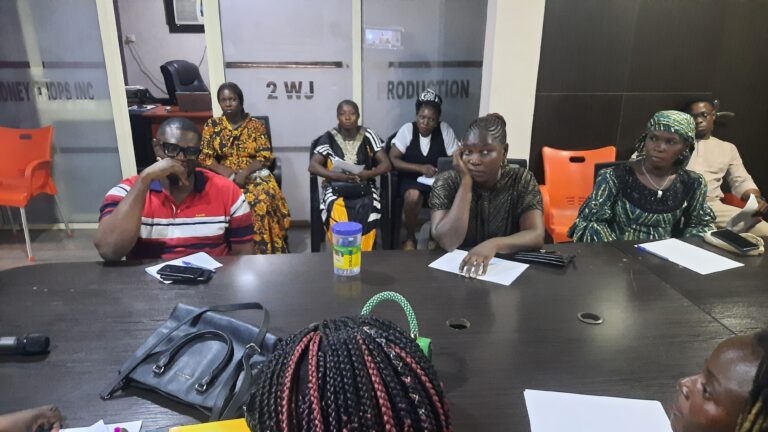
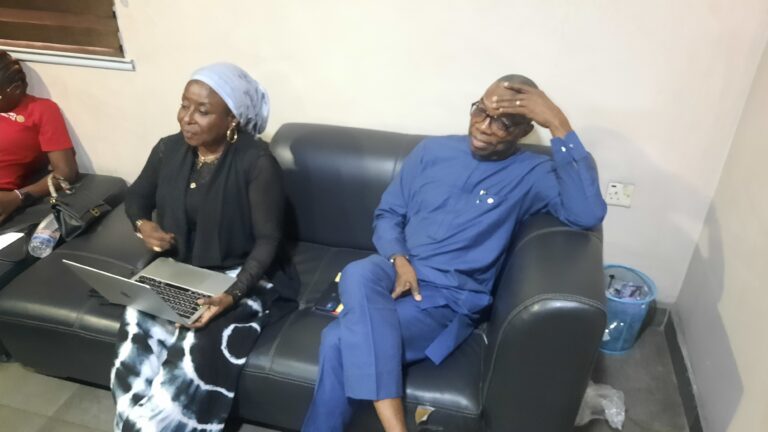
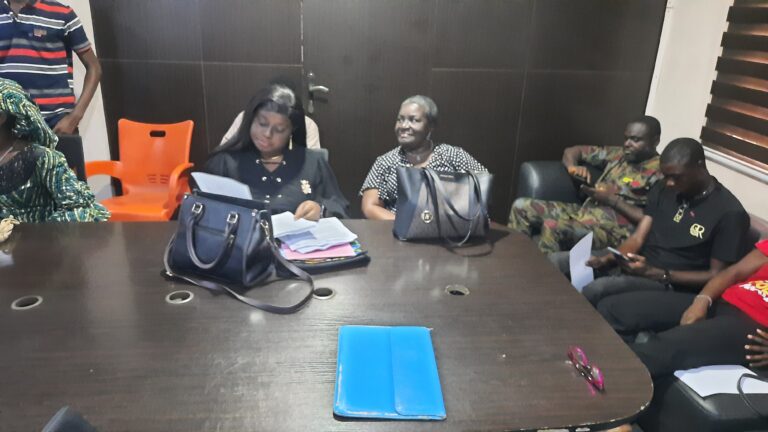
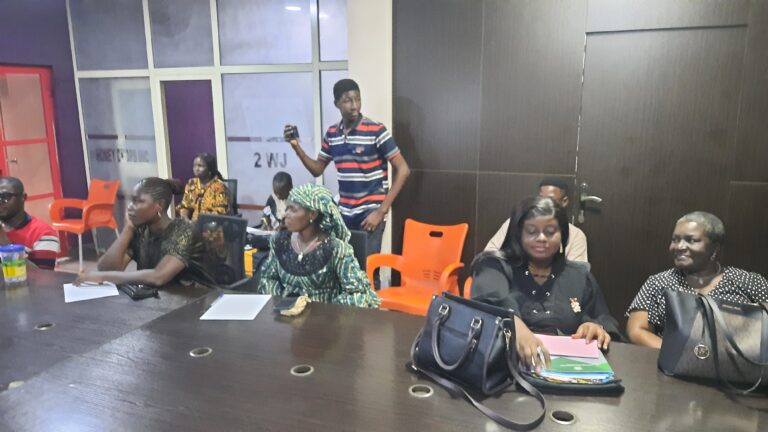
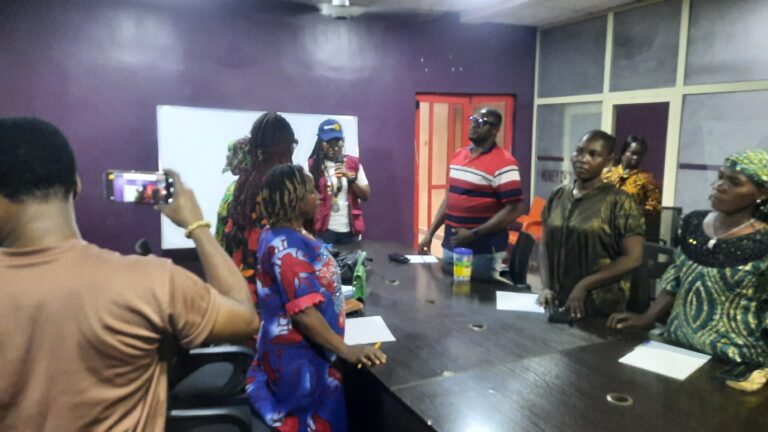
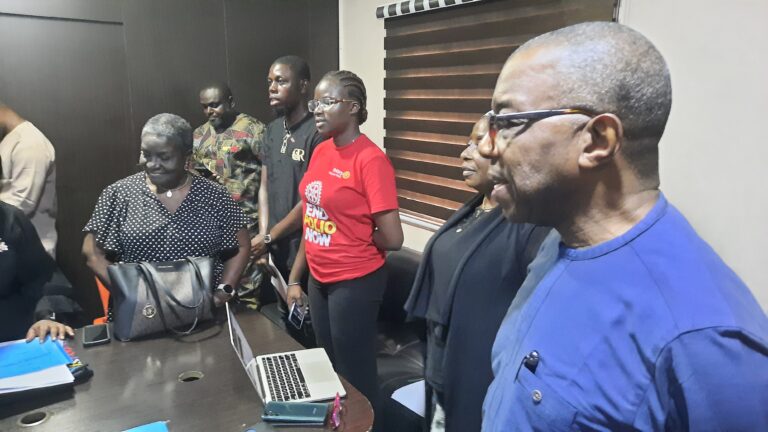
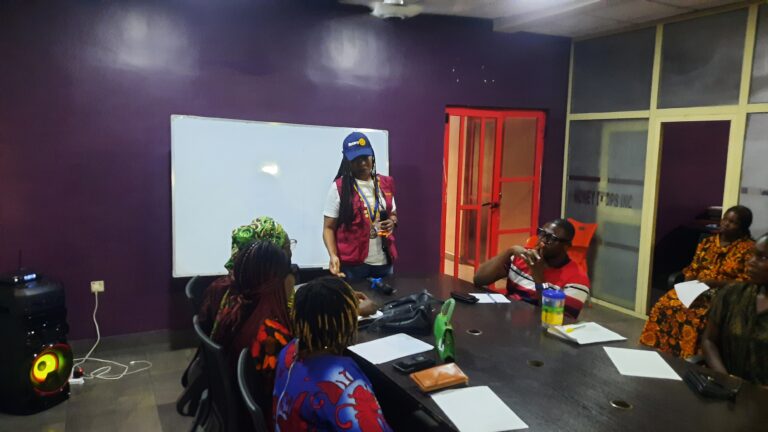
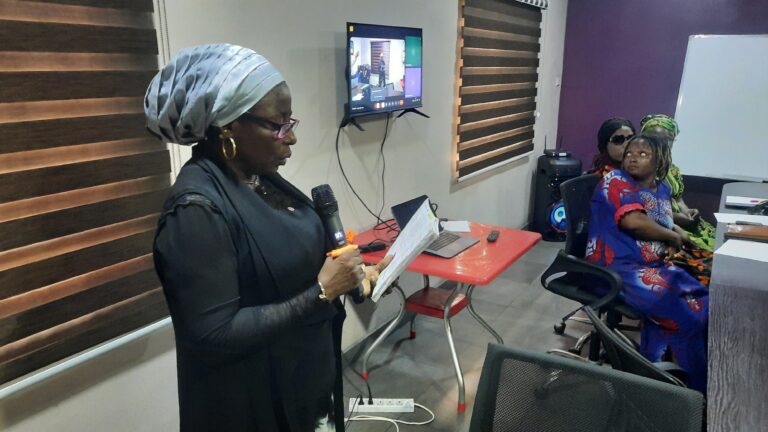
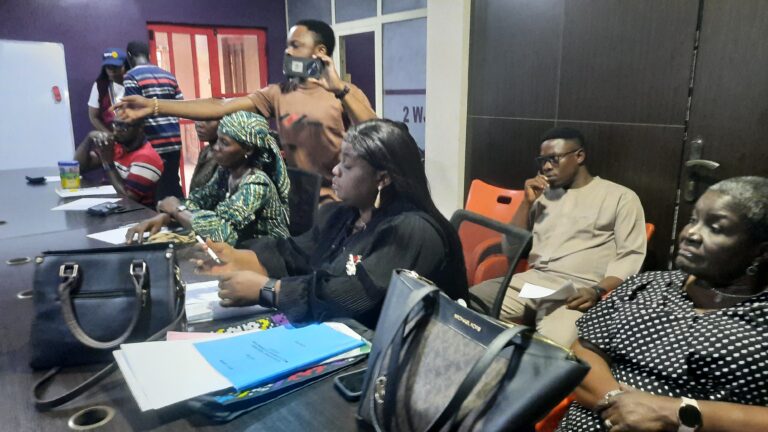
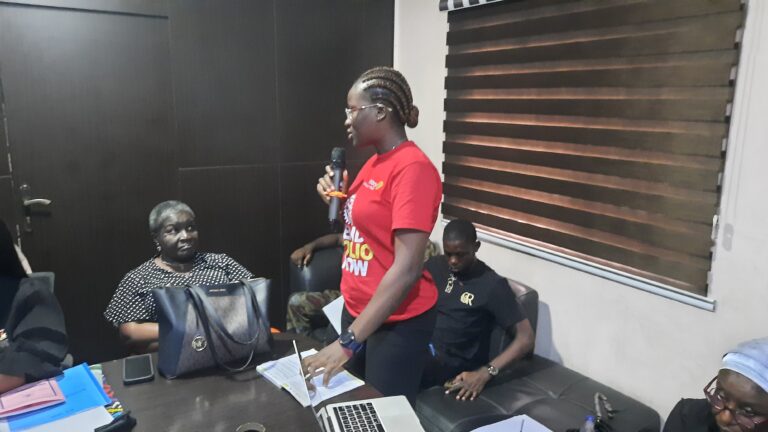

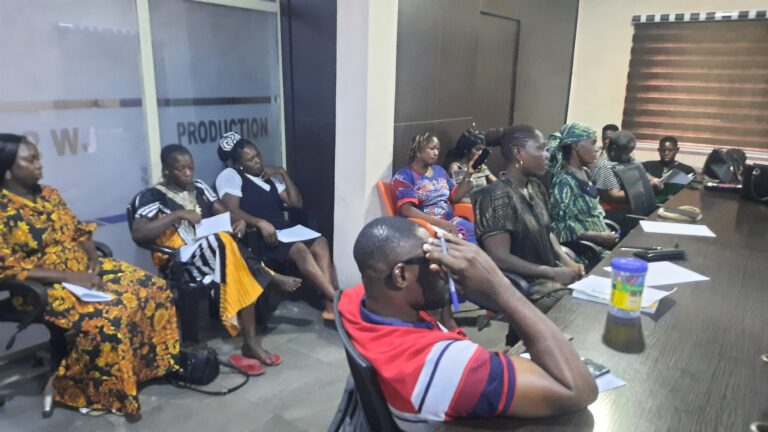
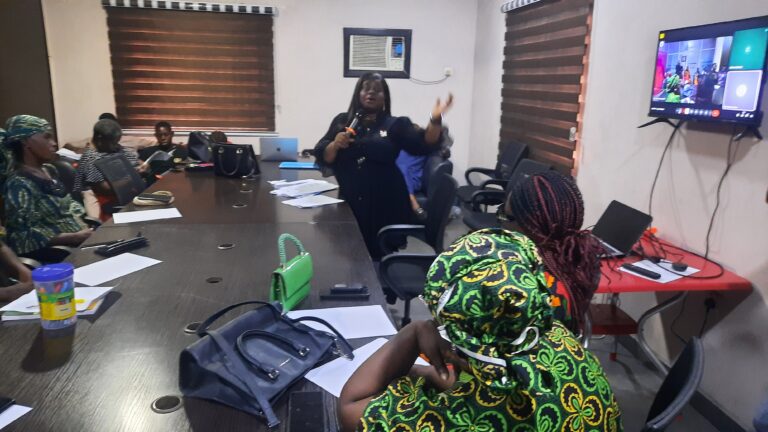
Business Planning and Financial Management for Cooperative Success
The third session was led by Innocent Iyalla Harry, Ph.D., F.CIoD, KSM, who presented on Business Planning and Financial Management for Cooperatives. His session provided the practical backbone of the training, equipping participants with tools for creating sustainable businesses and managing cooperative finances responsibly.
Dr. Harry explained the components of a functional business plan, including defining goals, identifying competitive advantages, understanding market needs, and developing operational strategies. He also emphasized the importance of accurate recordkeeping, budgeting, and transparent accounting. Participants learned how to track expenses, generate financial reports, and ensure that cooperative funds are used for their intended purposes.
He also highlighted challenges often faced by women in business—limited capital, inconsistent cash flow, poor savings culture—and provided practical solutions such as group savings schemes, micro-investments, and leveraging cooperative membership to access loans and grants. His session empowered the attendees with confidence and clarity on how to turn everyday ideas into viable, profit-generating ventures.
Rotary Club of Port Harcourt Cosmopolitan’s Commitment to Empowering Communities
The one-day training organized by the Rotary Club of Port Harcourt Cosmopolitan for POWA Oginigba was not just an educational programme, it was a transformative experience. The sessions offered a holistic view of cooperative development: from understanding cooperative principles to building strong governance systems, resolving conflicts peacefully, and managing business finances effectively.
By the end of the training, participants expressed immense satisfaction, noting that the knowledge gained would significantly improve how they run their cooperatives, households, and small businesses. The refreshments provided further enriched the experience, making the women feel valued and supported.
This initiative reflects Rotary Club of Port Harcourt Cosmopolitan’s unwavering commitment to empowering communities through education, economic support, and capacity-building. As the members of POWA integrate these lessons into their daily lives, they are poised to drive sustainable economic growth within their homes, their associations, and the wider community.
